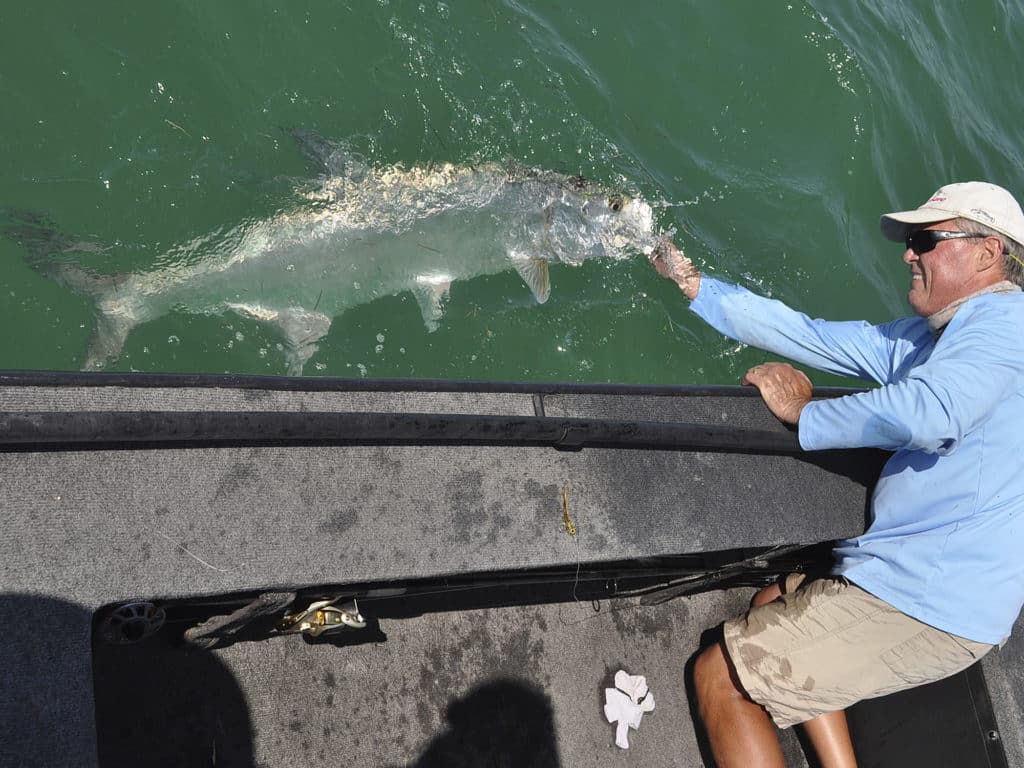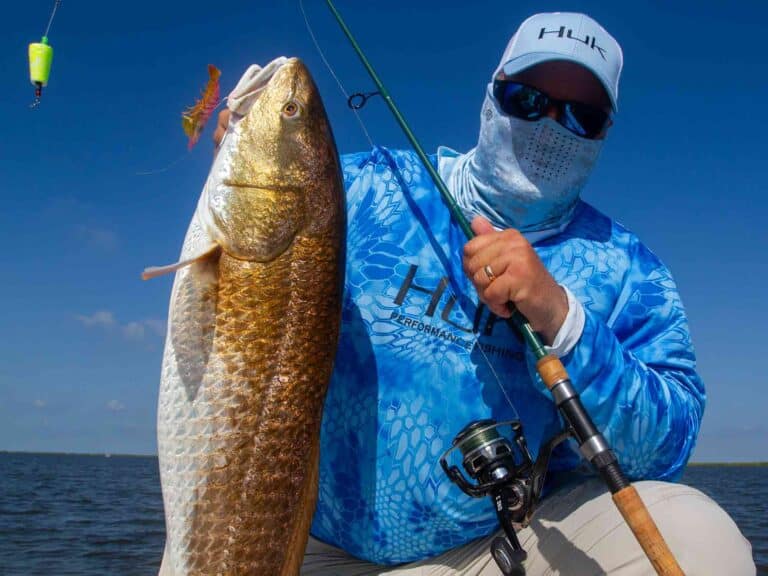
If you are new to chartering a flats-fishing guide, maybe you’re wondering what the protocol is? Any shallow-water captain will thank you for thinking ahead! As a long-time flats guide (now retired), I have a few things to say about this. Let me be your “guide” before you step aboard your next guide’s skiff. If you can stay away from these no-no’s, your trip will be a better experience for everyone involved.
We’ll keep it to five things you should avoid doing, although most captains could easily come up with plenty more. Oh, the charter customer horror stories I could tell, but let’s move on.
Don’t Lie About Your Fishing Ability
The first one starts on your initial contact with a captain. Don’t exaggerate your capabilities. You are likely going sight fishing, possibly for redfish, permit, bonefish, tarpon or stripers, and what you tell a guide helps him prepare for your trip. Tell him that you have caught untold numbers of bonefish or tarpon on fly, and he is going to assume you can see fish well and cast well. Be honest. If you are inexperienced, just say so. Your guide will set you up with easier fish, or perhaps chum them to the boat.
My charters were typically two anglers, and sometimes the disparity between their abilities and experience was great. Without fail, I would get a decent fly fisher whose buddy did not fly fish, and for that matter, didn’t spin fish much either. It’s a conundrum. And then there’s the expert angler who insists his bad angler buddy gets most of the bow time. It’s admirable, but also a guide’s nightmare. I’m not saying don’t ever bring your buddy, wife, husband, or boss who can’t fish. What I’m saying is to make sure the guide is aware of the fishing abilities of all anglers beforehand.
Don’t Bring Your Entire Rod and Reel Collection Onboard
Your flats guide undoubtedly has the ideal tackle for the home flats they fish. He or she may invite you to bring a favorite rod or two, but don’t walk down the dock with arms full of fly rod tubes. Similarly, bringing a bunch of unprepared spinning rods will be a major time waste. Your guide wants to hit the flats ready to pole and hook you up, not to spend half a morning rigging your stuff.
On that subject, don’t bring multiple boxes of flies and lures you fish back home. Your guide’s technical poling skiff will have limited storage, so leave the giant duffle bag full of unnecessary and out-of-place gear at home.
I once had a nice couple try to bring aboard a 5-foot-long hard case with multiple changes of clothes, untold camera and video gear, snorkels and fins for cooling off, and enough water for a Sahara Desert expedition. Discuss before the trip what your guide can carry for you. Be a minimalist.
Fishing Drunk or Hungover Can Be A Disaster
You’re not going to a party. You’re going flats fishing. Maybe you and your bud attended a blowout the previous night, but don’t show up at the dock drunk, without sleep, completely unprepared. You’ll be a worthless zombie before noon. You need to feel well to fish well. The summer heat, and standing on the bow all day, requires a clear mind and well-hydrated body.
And that takes us to liquids. Guides normally provide ample drinking water. But make sure to confirm ahead of time that the captain will bring drinks. Now, a couple of beers may be welcome too, though some guides do not allow alcohol onboard as strict policy. Check that ahead of time—and never, ever smuggle it aboard. Respect a captain’s rules aboard their boat. If alcohol is an absolute necessity, find a captain that accommodates your drinking needs.
I had a tough situation on an Everglades National Park trip years ago. I asked two out-of-towners to limit consumption to a 6-pack between them for a 6-hour trip. Next morning, there they were, on the dock waiting for me with a huge cooler of food and more than 15 beers. I reminded them of my policy. They begrudgingly stashed half of the beers back in their car. All was good, until around 10 a.m. when we released a nice 80-pound tarpon on fly. Out came the cigars. Then, a bottle of rum and limes magically appeared. “It’s Cuba Libre time!” the smuggler bellowed. But it wasn’t.
The smuggler, who was already on his third beer, said, “C’mon captain, how can we celebrate my first tarpon without cocktails? Hey, we are paying the bill here, right? We’re having a toast!”
It was hard, but I quietly stashed the tackle, asked them to sit down and ran them back to the ramp. They were silent and stunned. I told them they owed me nothing, and shoved off the dock and went fishing by myself. They loudly promised to ruin my reputation. I don’t recall that they ever did.
Don’t Try to Steal Your Captain’s Fishing Spots
This is a big one in this age of technology. Don’t be a spy on your guide’s skiff. Don’t sneak a handheld GPS aboard. Don’t whip out your video camera to record the boat trips between fishing spots. Simply put, don’t try to steal your guide’s fishing spots, no matter how sneaky you think you are. Maybe your guide will be a rare bird and give you his blessings. But the odds of that are pretty steep.
Your guide will likely ask you to take grip-and-grin photos without a recognizable background, and you should understand why. Lastly, don’t whip out your paper chart and ask your guide to mark it up.
A Guide as a Fishing Partner on a Charter is Asking for Trouble
Getting back to picking a fishing partner, never bring another guide as a fishing partner, unless you let your charter captain know beforehand. I don’t care if your friend guides in a different state, it puts most guides on the defense. And guess what? Your guide may welcome him aboard, but may not take you to the honey holes that he might have otherwise. And you can’t blame him.









